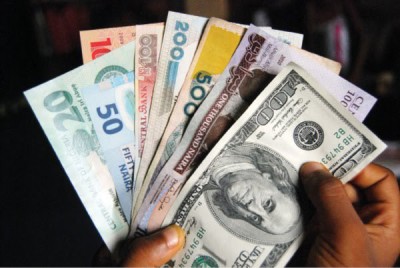
The tail end of 2015 already gave discerning Nigerians a sign that the coming year would be challenging and many citizens expected the introduction of policies that would help ameliorate the difficulties of these austere times and the President Muhammadu Buhari led administration did not disappoint them. Commendably, the government reduced the price of Premium Motor Spirit by 50 kobo.
The benefits of this sort of humane gesture from the Federal Government however seems to have been soured by the announcement by the Central Bank of Nigeria that it would be implementing a stamp duty policy.
The reason the Central Bank of Nigeria introduced the cashless policy now in place was because over 50 percent of the Nigerian population is unbanked.
The policy was meant to attract the unbanked population to bring their money into the banking sector and thereby increase the capital available to banks to grow the economy and also reduce corruption and crime by having an electronic trail of all financial transactions.
But with the implementation of the ₦50 stamp duty charge, whereby ₦50 is assessed as tax out of a deposit of ₦1000, the Central Bank of Nigeria will end up driving people away from the formal banking sector which will negate the gains of the cashless policy.
If an average Nigerian earning a minimum wage considers that a ₦1000 deposit into his account by a friend will leave him with only ₦950, it only makes sense that he will have a higher incentive to leave the banking sector and keep his money at home.
This action will have three consequences. The first is that the amount of money available in the banking sector will reduce as people pull out funds from Nigerian banks to keep at home or possibly to open accounts in neighbouring nations.
The second consequence is that incidences of crime and corruption will increase as people keep more cash at home where it cannot be traced, rather than in banks where it can be traced.
The final consequence is that our real Gross Domestic Product (GDP) will shrink because money will flow from the formal sector to the informal sector, thus making it impossible to accurately measure our real GDP.
In my opinion, the solution to this will be to adjust the stamp duty policy to make it applicable to only people who maintain a particular balance so that it does not affect low and middle income earners.
A person who maintains a balance of more than a million Naira will be better able to afford such a tax and will have less incentive to leave the banking sector than a low income earner with a few thousands of Naira.
I know that the economy is facing some challenges and there is the need to diversify our revenue base, however, in trying to do that, we should not be ₦50 smart and a billion Naira foolish!
These are challenging times for Nigeria’s economy and such times need a steady hand at the helm; one that will not panic.
Thankfully, President Muhammadu Buhari has shown that he has resolve. It is now left for those around him to bring to his attention the unintended consequences that will (not may) occur if this policy is continued.
I have read people on both sides of the divide argue this matter on social media. Some argue that the law allowing this policy preceded the Buhari administration and as such no one should blame him.
That kind of thinking really saps one’s energy. Must everything be reduced to who to blame?
When your house is on fire, your focus should not be on who to blame but on who can put out the fire. There is plenty of time for blame games later.
If the house is burnt down, of what profit will it be to argue about whether it was painted white or black?
Nigeria does not need panic measures, rather she needs tonic measures! A tonic is a supplement given to someone who has been experiencing weakness in an area in which he or she had once experienced strength for the purpose of rejuvenating that person.
To the opposition I say that I supported ex-President Goodluck Ebele Jonathan during the 2011 elections and I am convinced that he was and is still the best choice. But Nigerians preferred President Muhammadu Buhari and he is now my president; I accept his leadership and I will do everything I can to help him succeed. We must all wish him well.
We should not speak negatively about President Buhari or of Nigeria under his leadership. Can we speak negatively about our nation and at the same time pray positively about ourselves? Can we prosper in our home after cursing it with your mouth?
PREMIUM TIMES
END

Be the first to comment